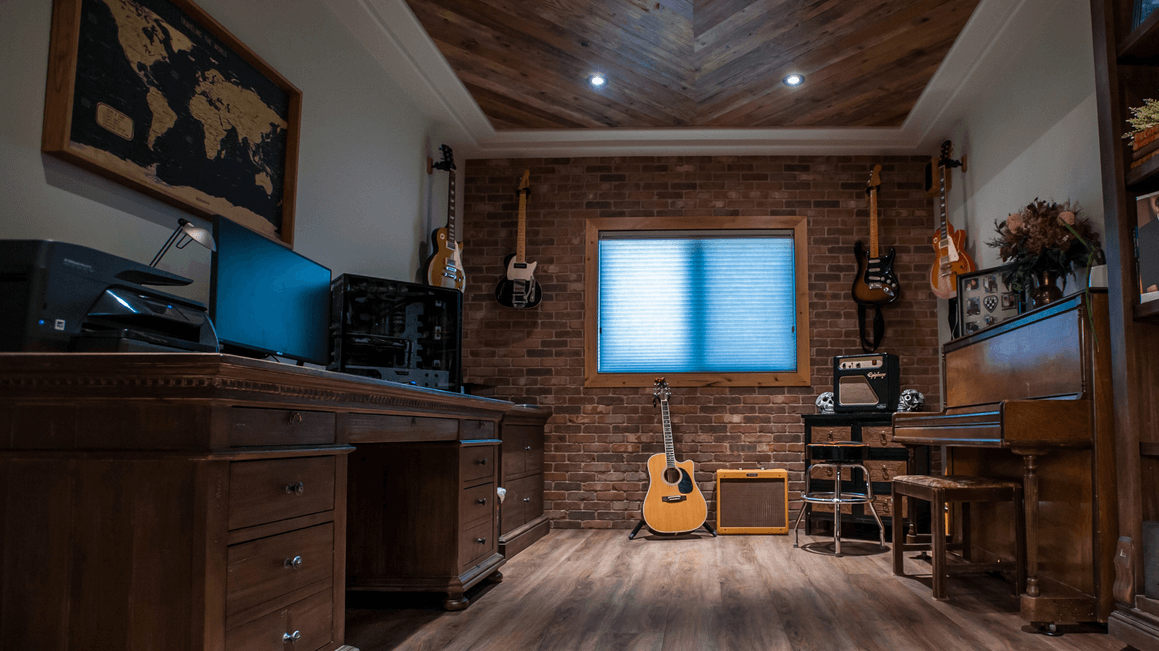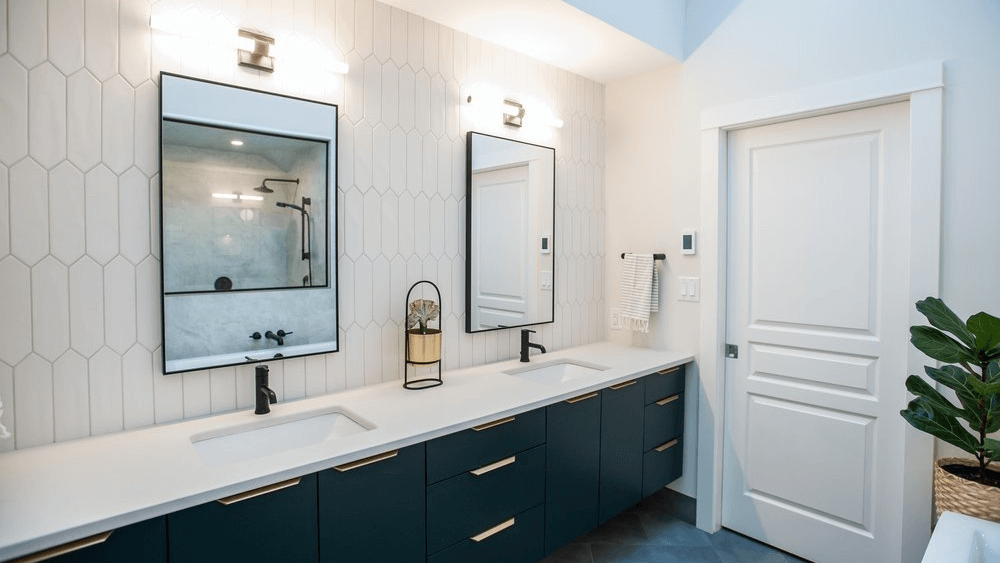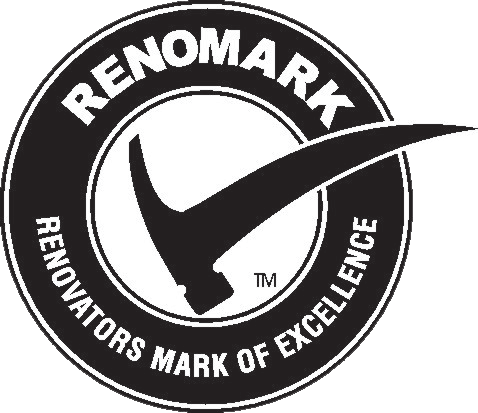Home renovation projects can transform your living space into the home of your dreams, but success hinges on thorough planning before the first hammer swings. Whether you're considering a kitchen remodel, bathroom renovation, basement development, or full home addition, understanding the essential planning steps will save you time, money, and stress while ensuring your project meets your expectations.
Proper renovation planning isn't just about choosing paint colours and fixtures—it's a comprehensive process that involves budgeting, permits, timelines, contractor selection, and managing the inevitable challenges that arise during construction. This guide will walk you through everything you need to know to plan your renovation project like a professional.
Understanding Your Renovation Goals and Scope
Before diving into the logistics of your renovation, you need to clearly define what you want to achieve. Start by asking yourself fundamental questions about your project goals:
Identify Your Primary Motivations:
Improving functionality and flow
Increasing your home's value
Accommodating lifestyle changes
Addressing maintenance issues
Enhancing aesthetic appeal
Creating additional living space
Understanding your "why" will guide every decision throughout the planning process. For instance, if you're renovating to increase resale value, you'll want to focus on improvements that offer a strong return on investment, such as kitchen and bathroom updates. If you're planning to stay in your home long-term, you might prioritize personal preferences and lifestyle improvements over market appeal.
Define Your Project Scope:
List all areas you want to renovate
Prioritize projects based on urgency and impact
Consider whether you want to tackle everything at once or phase the work
Determine if you need structural changes or cosmetic updates
Identify any accessibility requirements or future-proofing needs
Be realistic about your scope. Many homeowners start with ambitious plans but discover that budget or timeline constraints require scaling back. It's better to do fewer projects well than to compromise quality by overextending yourself.
Creating a Realistic Budget and Financing Plan
One of the most critical aspects of renovation planning is establishing a comprehensive budget that accounts for all project costs, not just materials and labour. A well-planned budget should include multiple categories and a substantial contingency fund for unexpected expenses.
Essential Budget Categories:
Design and planning fees
Permits and inspections
Materials and fixtures
Labour costs
Temporary living arrangements (if needed)
Storage solutions
Waste disposal and dumpster rental
Utilities modifications
Professional services (structural engineers, interior designers)
Contingency fund (15-20% of total budget)
Research Costs Thoroughly: Start by getting multiple quotes for major components of your project. Visit showrooms, research material costs online, and speak with contractors to understand labour rates in your area. Remember that costs can vary significantly based on quality levels, so establish your priorities early.
Navigating Permits and Building Codes
Many renovation projects require permits from your local municipality, and failing to obtain proper permits can result in fines, delays, and complications when selling your home. Understanding permit requirements early in your planning process is essential.
Projects That Typically Require Permits:
Structural modifications (removing or adding walls)
Electrical work beyond simple fixture replacements
Plumbing modifications or additions
HVAC system changes
Adding square footage or new rooms
Exterior modifications (decks, additions, windows)
Basement finishing and egress window installation
The Permit Process:
Contact your local building department to understand specific requirements
Prepare detailed plans and specifications
Submit permit applications with required documentation
Pay permit fees
Schedule required inspections during construction
Obtain final approval and occupancy permits
Working with licensed contractors can simplify the permit process, as experienced professionals understand local requirements and can handle applications on your behalf. However, as the homeowner, you're ultimately responsible for ensuring all work complies with building codes.
Choosing the Right Professionals for Your Project
The success of your renovation largely depends on the team you assemble. Different projects require different types of professionals, and understanding these roles will help you make informed decisions.
Key Professionals to Consider:
General Contractors handle overall project management, coordinate trades, and ensure work meets building codes. They're essential for complex projects involving multiple trades or structural changes.
Design-Build Firms combine design and construction services under one roof, streamlining communication and potentially reducing costs through integrated planning.
Interior Designers help with space planning, material selection, and creating cohesive design schemes that reflect your style and functional needs.
Specialty Contractors (plumbers, electricians, HVAC technicians) may be hired directly for smaller projects or specific components of larger renovations.
Vetting Potential Contractors:
Verify licensing, bonding, and insurance coverage
Request and contact multiple references from recent projects
Visit completed projects if possible
Obtain detailed written quotes from multiple contractors
Ensure all agreements are documented in comprehensive contracts
Developing a Realistic Timeline
Renovation timelines depend on project complexity, permit approval times, material availability, and contractor schedules. Understanding typical timeframes for different types of projects will help you plan accordingly.
Typical Timeline Ranges:
Bathroom renovation: 6-8 weeks
Kitchen remodel: 10-12 weeks
Basement finishing: 6-8 weeks
Room additions: 8-16 weeks
Whole house renovation: 4-6 months
Factors That Affect Timelines:
Permit approval times - Can range from days to months, depending on project complexity and local processing times
Material lead times - Custom items, specialty products, or backordered materials can cause significant delays
Weather conditions - Exterior work and some interior projects can be weather-dependent
Contractor availability - Popular contractors may have scheduling constraints
Inspection scheduling - Required inspections must align with construction phases
Unexpected discoveries - Hidden damage, outdated wiring, or structural issues can extend timelines
Creating Buffer Time: Add 20-30% buffer time to initial timeline estimates. This cushion accounts for typical delays and reduces stress when minor setbacks occur. If you have a firm deadline (such as hosting an event), communicate this early and build in extra contingency time.
Preparing Your Home and Family
Successful renovations require thoughtful preparation of your home and family for the disruption ahead. The extent of preparation depends on your project scope, but all renovations involve some level of inconvenience.
Home Preparation Steps:
Remove or protect furniture and belongings in work areas
Establish dust barriers to contain construction debris
Plan alternative routes through your home
Arrange temporary kitchen or bathroom facilities if needed
Secure valuable items and important documents
Create designated storage areas for displaced belongings
Install protective coverings on floors and remaining furnishings
Family Preparation Considerations: Managing family life during renovations requires patience and planning. Consider how construction noise, dust, and limited access to rooms will affect daily routines. If you have young children or pets, you may need to arrange alternative care during the most disruptive phases.
For major renovations, some families choose temporary relocation. While this adds to project costs, it can reduce stress and allow work to proceed more efficiently. Discuss this option with your contractor to understand whether it might benefit your specific project.
Material Selection and Procurement
Choosing materials and fixtures is one of the most enjoyable aspects of renovation planning, but it requires careful consideration of factors beyond aesthetics. Quality, durability, maintenance requirements, and lead times all play important roles in material selection.
Strategic Material Selection:
Research product reviews and manufacturer warranties
Consider long-term maintenance requirements
Balance quality with budget constraints
Choose materials appropriate for their intended use
Account for material availability and lead times
Select coordinating elements that work together cohesively
Procurement Timeline: Order materials well in advance of when they'll be needed. Custom items, natural stone, hardwood flooring, and specialty fixtures often have extended lead times. Work with your contractor to develop a material procurement schedule that aligns with construction phases.
Consider storage requirements for early deliveries. Some materials need climate-controlled storage or protection from weather and construction dust. Discuss storage logistics with your contractor and factor any associated costs into your budget.
Managing Project Communication and Documentation
Clear communication and thorough documentation are essential for successful renovation projects. Establish communication protocols early and maintain detailed records throughout the process.
Communication Best Practices:
Establish regular check-in schedules with your contractor
Document all changes and decisions in writing
Create a shared communication channel (email, project management app, or shared documents)
Address concerns promptly rather than letting issues escalate
Maintain professional relationships even when disagreements arise
Essential Documentation: Keep detailed records of all project-related documents, including contracts, permits, material receipts, change orders, inspection reports, and warranty information. This documentation protects your interests during construction and provides valuable reference material for future maintenance or resale.
Anticipating and Managing Challenges
Even well-planned renovations encounter unexpected challenges. Preparing for common issues and understanding how to address them will help you navigate problems more effectively.
Common Renovation Challenges:
Hidden structural or systems issues discovered during demolition
Material delays or discontinued products
Weather-related delays for exterior work
Permit approval delays or requirement changes
Contractor scheduling conflicts
Budget overruns due to unforeseen circumstances
Design changes that affect the timeline or costs
Challenge Management Strategies: Maintain open communication with your contractor about potential issues and solutions. Be prepared to make decisions quickly when problems arise, as delays in decision-making can compound project delays. Keep your contingency budget available for unexpected expenses, and remember that some flexibility in timeline and budget expectations is normal for renovation projects.
Quality Control and Final Inspections
As your project nears completion, active involvement in quality control helps ensure work meets your expectations and contractual agreements.
Quality Control Checkpoints:
Conduct regular walk-throughs with your contractor
Compare completed work to original plans and specifications
Test all systems and fixtures thoroughly
Document any deficiencies or punch list items
Ensure all work meets building code requirements
Verify proper cleanup and site restoration
Final Project Completion: Before making final payment, ensure all work is completed to your satisfaction, all permits have received final approval, and you've received all warranty documentation and care instructions for new materials and systems.
Conclusion
Thorough renovation planning sets the foundation for a successful project that enhances your home and lifestyle. While the planning process requires significant time and attention to detail, this investment pays dividends throughout construction and in your long-term satisfaction with the results.
Remember that renovation projects are investments in your home's value, functionality, and your family's quality of life. Taking time to plan properly, work with qualified professionals, and maintain realistic expectations will help ensure your renovation project achieves your goals within budget and timeline constraints.
Ready to transform your vision into reality? Working with experienced, licensed professionals who understand the complexities of renovation planning can make the difference between a stressful ordeal and an exciting transformation. Contact Diamond Contracting today to discuss your renovation goals and discover how their design-build approach can streamline your project from initial planning through completion. With a team of certified tradespeople and interior design professionals, we’ll help you navigate every aspect of renovation planning while ensuring exceptional craftsmanship and attention to detail throughout your project.
















